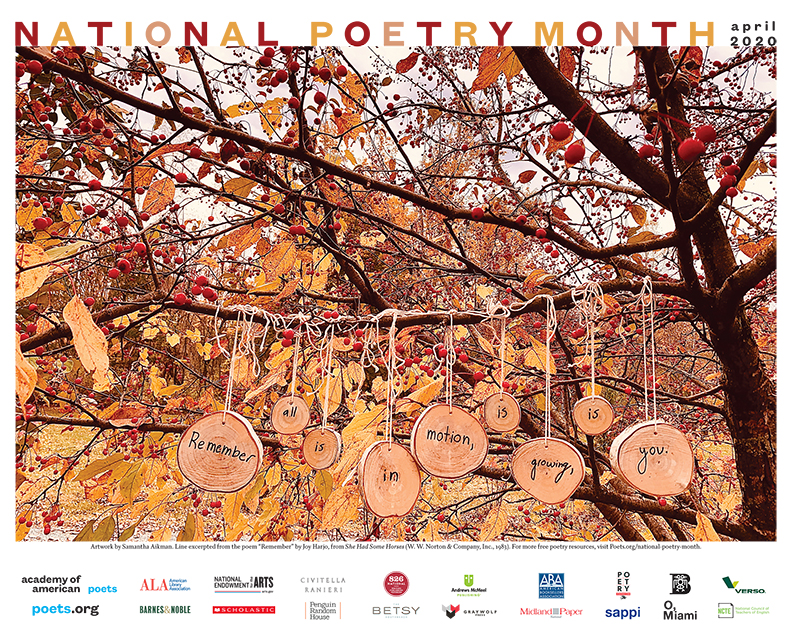April is, among other things, National Poetry Month, a time to recognize and celebrate poetry.

I have always wanted to be a lover of poetry, but I’ve begun to acknowledge that I might not like poetry even if it is “good” (as with any art or medium), or that poetry can be good simply because I (and I alone) like it. That a single line of a poem is my main takeaway. That what I love most about a poem is its rhythm.
As longtime followers of my blog might know, I dabbled in the indulgently “emo” and self-proclaimed “deep” practice of writing poetry as a middle-schooler. It was embarrassing stuff but, even then, revealed my love for meter and and words that paint a specific image in the mind. I recall trying to write a free verse poem that more or less ended as a limerick, so dearly did I cling to rhyme and meter.
For many people, critical reading of poetry in a high school English class really turned them off of poetry, if not most leisure reading. I was fortunate enough to have connected enough with my English teachers and their teaching that reading poetry through this lens really enhanced my enjoyment of poetry. I’ll never forget reading Sylvia Plath, the poet that “emo” girls love to morbidly think on, and learning about the precise kind of emotion and imagery she was evoking in “Sheep in Fog”:
The hills step off into whiteness.
People or stars
Regard me sadly, I disappoint them.The train leaves a line of breath.
O slow
Horse the color of rust,Hooves, dolorous bells–
All morning the
Morning has been blackening,A flower left out.
My bones hold a stillness, the far
Fields melt my heart.They threaten
To let me through to a heaven
Starless and fatherless, a dark water.
To close, as quarantine stretches out before us, I’d like to share a poem by Adam Zagajewski, translated from Polish by Claire Cavanagh, that a friend on Instagram shared yesterday.
“Try to Praise the Mutilated World”
Try to praise the mutilated world.
Remember June’s long days,
and wild strawberries, drops of rosé wine.
The nettles that methodically overgrow
the abandoned homesteads of exiles.
You must praise the mutilated world.
You watched the stylish yachts and ships;
one of them had a long trip ahead of it,
while salty oblivion awaited others
You’ve seen the refugees going nowhere,
you’ve heard the executioners sing joyfully.
You should praise the mutilated world.
Remember the moments when we were together
in a white room and the curtain fluttered.
Return in thought to the concert where music flared.
You gathered acorns in the park in autumn
and leaves eddied over the earth’s scars.
Praise the mutilated world
and the gray feather a thrush lost,
and the gentle light that strays and vanishes
and returns.
I hope that in this unprecedented time, you are able to find a poem that brings you comfort. Songs absolutely count as poetry (who among us has not posted a beautiful song lyric somewhere), but I challenge you to take the time to read the lyrics without listening to the song and even speak them aloud without music. Let the words themselves bring you comfort. We all deserve a song like that.
